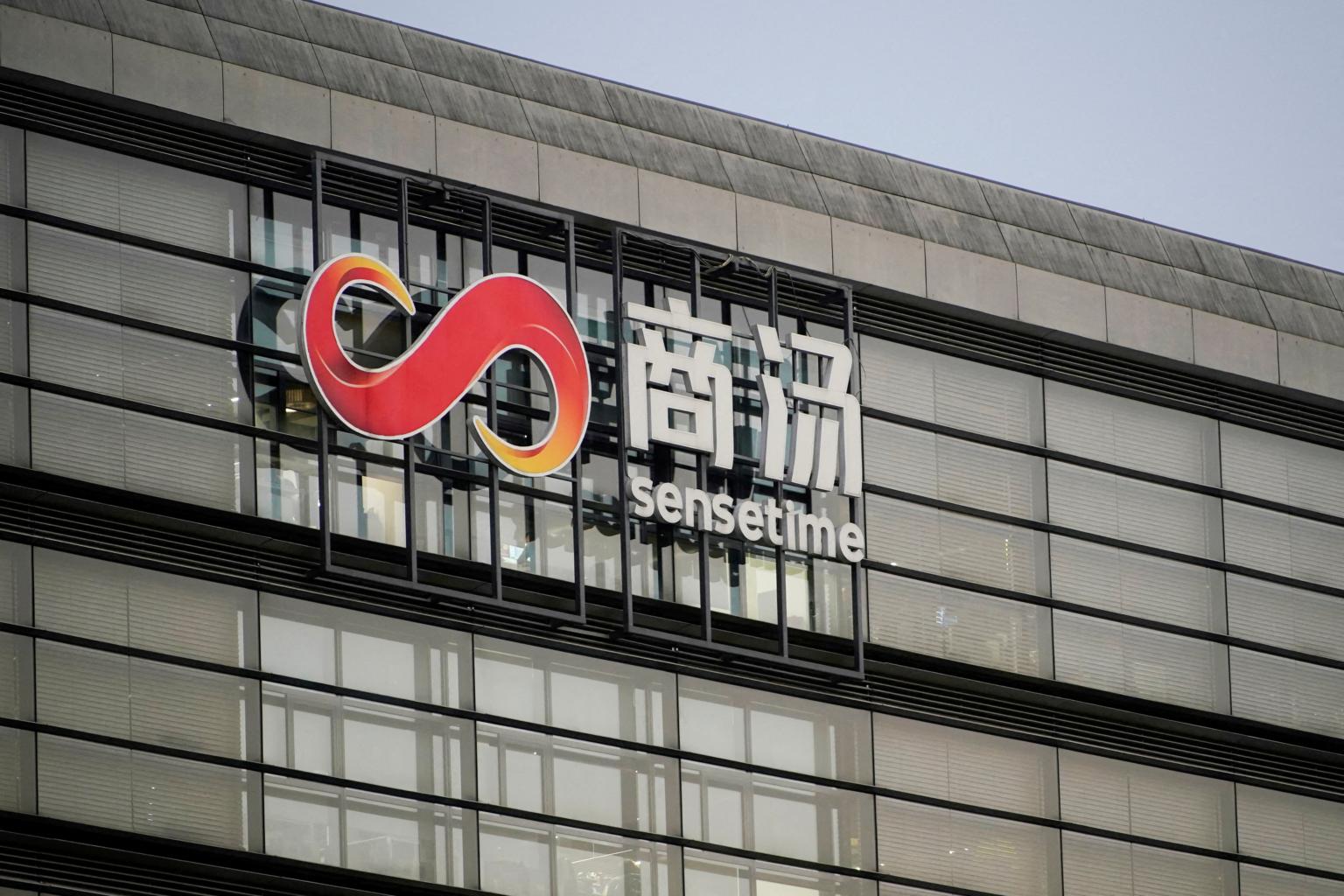SenseTime jumps 17% on debut after IPO delayed by US sanctions
Sign up now: Get ST's newsletters delivered to your inbox

SenseTime has been one of the most high-profile Chinese tech firms targeted by the US.
PHOTO: REUTERS
HONG KONG (BLOOMBERG) - Chinese artificial intelligence giant SenseTime Group climbed on its first day of trading in Hong Kong after a rocky initial public offering (IPO) that was delayed by concerns over fresh United States sanctions.
The stock gained as much as 17 per cent in early trading on Thursday (Dec 30). The SoftBank Group-backed company raised HK$5.78 billion (S$1 billion) selling 1.5 billion shares at HK$3.85 apiece, the bottom of its marketed range.
SenseTime, which early on sought at least US$2 billion (S$2.7 billion) in its IPO, has been one of the most high-profile Chinese tech firms targeted by the US. The firm's debut comes weeks after the US Treasury Department sanctioned it over its alleged involvement in human rights abuses in Xinjiang, a charge it has vigorously denied. The curbs follow a blacklisting by the Commerce Department under the Trump administration.
The company pushed ahead with the listing, securing US$512 million from nine cornerstone investors including the state-backed Mixed-Ownership Reform Fund and Shanghai Xuhui Capital Investment.
"Due to the dynamic and evolving nature of the relevant US regulations, we have (been) required to exclude US investors" from the global offering, including the issuance in Hong Kong, it said in a revised filing to the city's stock exchange earlier this month.
Founded in 2014 by computer scientists, SenseTime specialises in AI-powered software that analyses faces and images on an enormous scale and works with policing bodies, retailers and healthcare researchers around the world. The firm competes with Alibaba Group Holding-backed Megvii Technology, which is seeking a share sale in Shanghai.
Chinese companies that debuted in Hong Kong since July, when Beijing extended the clampdown over several industries, have seen their shares rise an average 1 per cent on the first day of trading, according to data compiled by Bloomberg. Nine firms that have listed this month prior to SenseTime have seen an average drop 2.8 per cent in their stocks.
About 60 per cent of the capital raised from SenseTime's IPO will be used on research and development, chief executive officer Xu Li said in a Bloomberg Television interview taped before the new sanctions were announced.
The firm has invested heavily in building super computers that can train client-facing AI models, an effort that is set to pay off as the loss-making company scales up. Revenue in the six months ended June 30 nearly doubled to 1.65 billion yuan (S$350 million), while net losses narrowed to 3.7 billion yuan from 5.3 billion yuan in the first half of 2020.
"Cost is key for the commercialisation of a technology," said Mr Xu, adding that the investments offer the company a clear path to achieving profitability.
In the comments made earlier this month, Mr Xu also acknowledged that the Commerce Department's sanctions had impacted its overseas expansion. Still, the executive sought to downplay the impact, saying that more people embracing the technology will help to bring down barriers.


